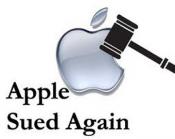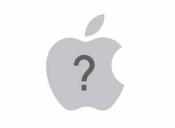iPhone to Android users sue Apple over 'lost' texts
Posted by: Jon Ben-Mayor on 05/18/2014 06:51 AM
[
 Comments
]
Comments
]
It is a common gripe that I personally have heard from many of my friends. After switching from an iPhone to an Android device; they no longer receive text messages from current iPhone owners - and all attempts to rectify the issue with Apple is met with limited results.

 The problem seems to center around the the fact that the telephone number, which is now associated with an Android device, is still connected to iMessage, which will show the sent message as "delivered" even though it is not.
The problem seems to center around the the fact that the telephone number, which is now associated with an Android device, is still connected to iMessage, which will show the sent message as "delivered" even though it is not.
Apple provided the following information for deactivating iMessage:
If you experience any of these symptoms, you might want to deactivate iMessage:
You can't receive SMS on your non-Apple device when another person sends them using an iPhone.
You can't send SMS to a non-Apple device because they send as an iMessage.
Resolution
If you experienced the symptoms above, your cellular phone number might still be registered with iMessage. When you turn iMessage on with your iPhone, iMessage registers your cellular telephone number.
To deregister your phone number, tap Settings > Messages and turn iMessage off.
If you can't access your iPhone, you no longer have it, or you can't deactivate iMessage after you try the above steps, please contact Apple Support.
Performing these tasks won't deregister iMessage:
Logging into My Support Profile and changing your password or removing your phone number
Sending an SMS text message STOP to 48369
Resetting your network settings
Changing your Apple ID password
These instructions apparently were not enough; a class action suit, that according to TUAW, alleges that consumers who decide to switch from Apple's ecosystem to Android are being "penalized and unable to obtain the full benefits of their wireless-service contracts."
According to Bloomberg, the text-messaging lawsuit, which seeks class-action status and undetermined damages, claims Apple failed to disclose that switching to a device other than one running on Apple’s iOS operating system would result in the interference. The suit is based on contractual interference and unfair competition laws.
Apple spokeswoman Kristin Huguet declined to comment on the lawsuit.
It seems that there is an area that Apple is extremely efficient; attracting and initiating lawsuits.

 The problem seems to center around the the fact that the telephone number, which is now associated with an Android device, is still connected to iMessage, which will show the sent message as "delivered" even though it is not.
The problem seems to center around the the fact that the telephone number, which is now associated with an Android device, is still connected to iMessage, which will show the sent message as "delivered" even though it is not.Apple provided the following information for deactivating iMessage:
If you experience any of these symptoms, you might want to deactivate iMessage:
You can't receive SMS on your non-Apple device when another person sends them using an iPhone.
You can't send SMS to a non-Apple device because they send as an iMessage.
Resolution
If you experienced the symptoms above, your cellular phone number might still be registered with iMessage. When you turn iMessage on with your iPhone, iMessage registers your cellular telephone number.
To deregister your phone number, tap Settings > Messages and turn iMessage off.
If you can't access your iPhone, you no longer have it, or you can't deactivate iMessage after you try the above steps, please contact Apple Support.
Performing these tasks won't deregister iMessage:
Logging into My Support Profile and changing your password or removing your phone number
Sending an SMS text message STOP to 48369
Resetting your network settings
Changing your Apple ID password
These instructions apparently were not enough; a class action suit, that according to TUAW, alleges that consumers who decide to switch from Apple's ecosystem to Android are being "penalized and unable to obtain the full benefits of their wireless-service contracts."
According to Bloomberg, the text-messaging lawsuit, which seeks class-action status and undetermined damages, claims Apple failed to disclose that switching to a device other than one running on Apple’s iOS operating system would result in the interference. The suit is based on contractual interference and unfair competition laws.
Apple spokeswoman Kristin Huguet declined to comment on the lawsuit.
It seems that there is an area that Apple is extremely efficient; attracting and initiating lawsuits.
Comments






